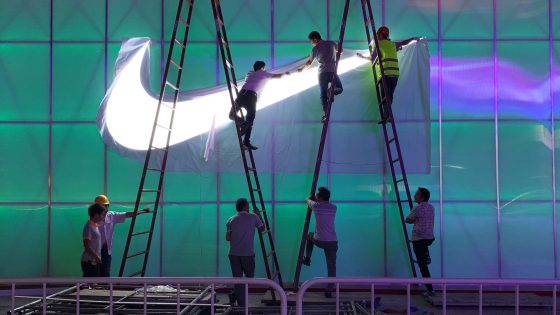If the economic stimulus plans in China prove successful in boosting consumer spending and economic growth, it could make life easier for two new CEOs in the United States who are trying to orchestrate their own turnarounds. Brian Niccol and Elliott Hill are taking over Starbucks and Nike , respectively, just as a key market that weighed on their predecessors gets a boost. Both companies are in the top 50 of S & P 500 companies with direct sales exposure to China, according to Bank of America â Nike has 14.7% exposure, while Starbucks is at 8.6%. As China’s economic stimulus takes shape, it could end up helping these global brands. “A fundamental turnaround will likely require additional support â particularly on the fiscal front â to stabilize the property market and revitalize consumption. But the coordinated efforts and rapid follow-up so far suggest that this could be the real deal for the broader economy as well, contingent on policy continuity and execution,” said an Oct. 1 UBS note from analyst Hartmut Issel and others. The same note named Starbucks as one of the U.S. stocks that could benefit from a rebound. SBUX 3M mountain Starbucks’ stock has rallied since the company announced a CEO change. Nike and Starbucks in China While the exact plans for Niccol and Hill are still unclear, the Chinese market seems like it will be an area of focus. At Starbucks, the company’s leadership team in China has already been reshuffled since Niccol took over in September. Some Wall Street analysts have speculated that a bigger shake-up could be an option there, such as a joint venture with a Chinese company to help reshape the business in that market. And at Nike, executives still appear to see China as a growth opportunity. “Even though we’ve moderated our near-term expectations for China for the remainder of this year, sport is a growth industry in China. Sport participation is on the rise, and we believe that we’re optimistic about the long-term possibilities for Nike in greater China,” Matthew Friend, Nike’s CFO, said on the company’s earnings call Tuesday. Hill, who officially takes over on Oct. 14 , did not speak on the call. Still, a rebound for China’s consumer won’t necessarily boost sales for Starbucks and Nike without better execution. In recent years, the companies have battled rising competition from local firms as well as a growing skepticism of foreign brands from the Chinese government and consumers. “Global brands cannot assume equal or outsized benefits from China’s recovery, given consumers’ rising focus on products’ functional & emotional value, ‘disenchantment’ of global brands and domestic brands’ growing competitiveness,” Bank of America analyst Chen Luo said in an Oct. 2 note to clients. Reasons for skepticism Shares of Chipotle and Nike rallied after the companies announced their leadership changes, but winning over investors further could take time, even with a boost in China. Some investors told CNBC that they were taking a patient approach to gauge the impact of the executive changes and stimulus. “Certainly it is better than not having the stimulus. But I think the stimulus in China so far is unclear as to how much of it will end up benefiting the consumer,” said Ellen Hazen, chief market strategist at F.L. Putnam, when asked about the potential impact on Starbucks. “I don’t know that it will make a huge difference, particularly overnight,” Hazen added. Eric Clark, co-portfolio manager of the Rational Dynamic Brands Fund , said the CEO change at Nike was “a clear morale booster” for the company, but there was not a clear path to being a high growth name again. He said his fund has traded in and out of Nike this year, but does not currently own the stock. “If I can get Nike at $75 or under, I’d probably do it … but it’s just not going to be put in the growth basket, I don’t think, anymore,” Clark said. “The only catalyst that there is is a new CEO with a reinvigoration of innovation, which is a bit of a prove-me story. And China just doesn’t seem like it’s going to change anytime soon,” he added. Both stocks have underperformed the broad market badly year to date, with divided opinions on Wall Street. The wait-and-see approach from investors could apply to not only to the companies but also China itself. The announced stimulus policies so far have largely focused on the real estate sector, and it is unclear if the final package will deliver a sustained boost to Chinese consumers. “Policies need to be decisive, given massive wealth destruction & property turmoil before. We believe a huge amount of work needs to be done, to repair confidence/expectations, especially amid frequent shocks from internal policy back-and-forth and external geopolitics,” Bank of America’s Luo said. â CNBC’s Michael Bloom contributed reporting.
Source Agencies




